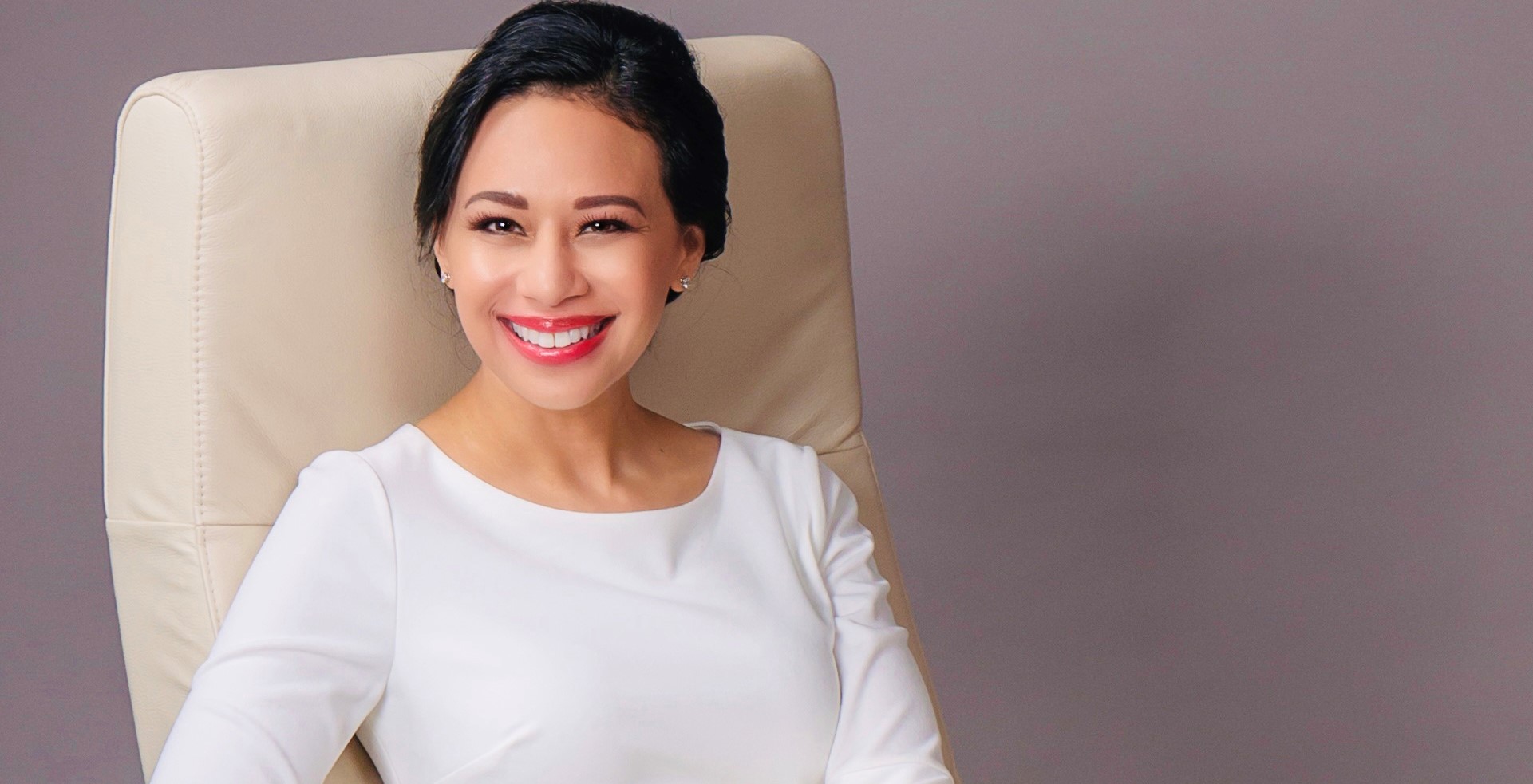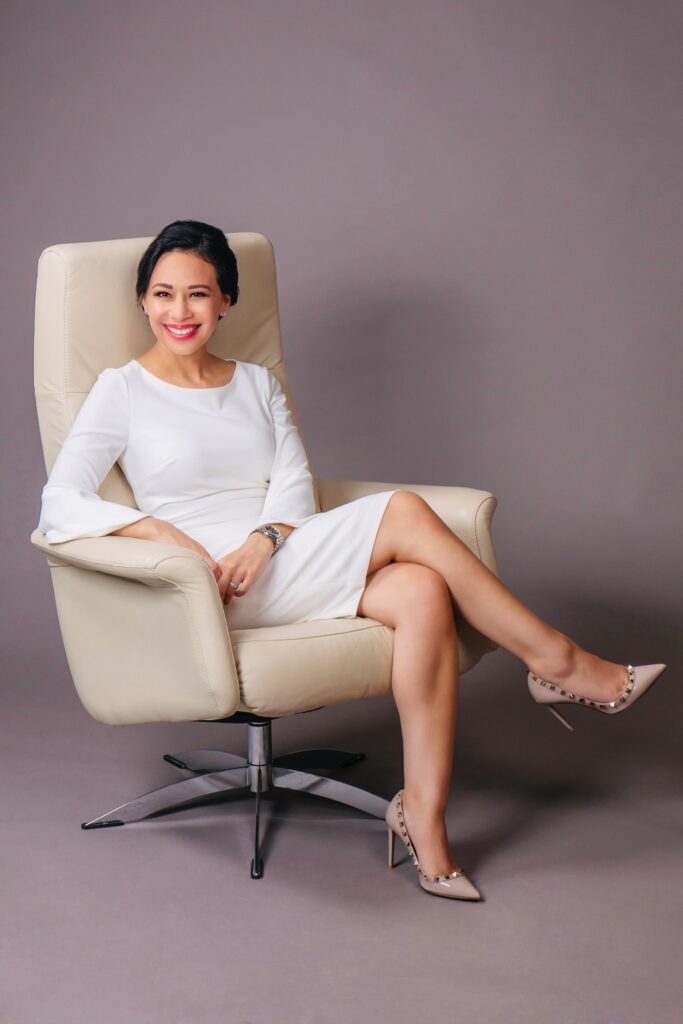By Cynthia Vera
Growing up with Surinamese parents as a second-generation ethnic child, Marleen Somohardjo often felt restricted by the societal and familial pressures placed upon her as a woman who was expected to have a family not pursuit her dreams. However, as an empowered woman, Marleen realised though during her upbringing, financial resources and opportunities were limited, she still had the self-belief and drive to achieve by goals.
In a courageous embarkment into an entrepreneurial journey, she started her own business, M2 Advisory, in 2008 during the financial crisis. Though this didn’t hinder her plans to grow her business into an international organisation with ambitions on expanding further in the future.
You founded M2 Advisory over 10 years ago, a company specialised in management consultancy, can you tell us why this was the right move for you? Was this something you always wanted to do?
I started my business now almost 13 years ago, during the financial crisis in2008. I graduated from university on the topic of Entrepreneurship, and I always wanted to have my own management consultancy company. However, I first started my career at KPMG. The learning school with KPMG created a beautiful basis and network for future opportunities. I realised my dream to start my own company.
To me, this was to me the best way to explore my capabilities as a business owner, who I am as a person and for my personal growth. As an entrepreneur, I could use my visionary, strategy, and organisational skills to the fullest; especially at the beginning and also whilst building the business.
In hindsight, embarking on the entrepreneurial journey during the financial crisis and also working within the financial sector was a courageous decision. Nevertheless, this was what I had in mind and timing didn’t distract me from my mission. I stayed focused and shared my plans with like-minded people. I was approached for the first assignment and that helped in building my confidence and self-esteem as an entrepreneur. It shows that when you believe in yourself and follow your dreams, things always get better, because I survived my business during the financial crisis until now.

What did you think was missing within consultancy firms before M2 Advisory? How do you differ from other companies with experience in consulting financial institutions and governments?
The first element I missed, and often received this feedback from customers, was the one-dimensional approach during the consultancy process. Often consultancy is perceived as an intangible product and not applicable for the entire organisation. I always want to provide the best service by creating more impact for the customer. I wanted to differ in delivering a more end-to-end solution where focus is on the alignment between strategic goals and business objectives. The other mission is that business objectives are converted into profits.
The second element that I miss is the speed in decision making due to the organisational structures. The pace for decision-making is very important to engage with your people and commitment for delivery. If that slows down, you lose momentum and creditability.
The third missing element was the innovate power catered by consultancy firms. I wanted to respond to that niche. M2 Advisory differs in their knowledge and innovative power. The service with the 5 pillars and framework intelligence using both risk and financial management is a perfect example in this.
We use our expertise in risk management within financial institutions to educate on hedging financial risks on the Balance Sheet. We understand business, business data and risk management as being part of the business model that requires different skills to grasp and create future solutions. That element, how the balance sheet with intangible assets converts into profits, always intrigued me. Understanding macroeconomics methodologies, financial management and risk models are the main driver in the dynamic world within financial institutions. These elements are part of my toolkit to adequately serve the customer.
M2 Advisory is internationally based, from The Netherlands to the Kingdom of Bahrain, are you looking to expand to more countries?
Yes, I would like to expand to Singapore. During my world travel many years ago, I immediately fell in love with the vibrant, entrepreneurial mindset and ecosystem in Singapore. I think that within the new digital economy and era, Singapore will showcase their leadership in innovations. The block chain technology within logistics for example, one of their core competences/sectors and use of seamless trade are already significantly contributing to the new economy. The new management services of M2 Advisory anticipated to these developments and can cater to this market accordingly. So, I’m definitely exploring opportunities to expand in Singapore.
Your core essence of your work is about visionary, analysis and connecting with people, have there been moments that conflict within your own team and how do you as a leader handle these?
Yes of course, and conflicts are occasionally – to my opinion – good for holding everyone accountable as you can learn from each other and the situations. When I have a conflict, I stress out the core values of trust, respect, responsibility and excellence in results and act accordingly. With these values, I protect myself, my team members and create a safe environment for them. I also think that direct, transparent and clear communication is key to prevent conflict situations.
Do you think there’s ever any pressure put on you as a leader and female entrepreneur? If so, how do you overcome them?
Yes, I feel sometimes both societal and family pressure. I have an ethnic background with parents born in Suriname, and that brings pressure for being the second-generation ethnic. I’ve learned that you need to take a better position in life to your parents. During my upbringing, the financial resources or networking opportunities were limited, so I had to do everything by myself to achieve my goals.
The family pressure around creating my own family instead of having a career is also a topic that comes up for me. I felt this pressure during my upbringing and being the first female in the family with a university degree. As a female entrepreneur, I still encounter situations that don’t provide equal opportunities and you have to prove yourself a triple amount compared to a male entrepreneur. I overcome pressure by prayers, listening to my heart, inner voice and enquire what I need to become a better human being, leader, entrepreneur, spouse, daughter, aunt, sister, or friend. I always had a strong belief that I had to achieve certain things in life and not pander to the pressure if it doesn’t bring me happiness. I follow that voice, this helps me to stay true to my values with patience and perseverance.
Covid-19 has had many severe financial effects on many businesses who are slowly overcoming this. What advice would you give to business owners in a financial hurdle right now?
The difficulty with Covid-19 is that the disruption within processes impacted the strategic planning and hinders these processes to be converted into profits and positive cash flows over a longer period. To create assets into profits again you should:
- Rethink your strategic goals and create a roadmap that supports your vision and financial position.
- Ensure a certain level of quality in your product or services. Now more than ever, you should improve and utilise customer experience data to generate more revenues and focus on and your core competences.
- Even when going through a financial hurdle, innovations and investing into future solutions are still needed for the business and people working with you. For example, when you invest into robust infrastructures, this enables you to generate profits by attracting more and other customers.
Studies show that sustainable and financially viable companies understand the effects of efficient processes, thus more capable to pivot successfully when needed. Companies that overcome financial effects are the fastest ones that pivoted immediately at the beginning of the Covid-19 crisis, which is a perfect example of how companies strengthen their innovative power. Continuously measuring performance to this will further elevate and improve your level of service and/or products.







